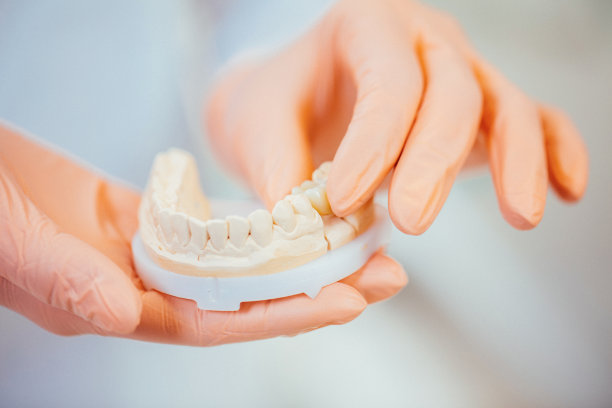Summary: Periodontal disease, a common oral health issue, is increasingly recognized for its profound implications on overall health. This article delves into the intricate relationship between periodontal disease and systemic health, highlighting its influence on various medical conditions, the importance of preventive care, and the need for increased public awareness. By understanding these connections, patients can make informed decisions regarding their oral health, ultimately leading to improved overall well-being. In addition, we emphasize the vital role that dental professionals play in educating their patients about the often-overlooked significance of periodontal health in comprehensive healthcare.
1. Understanding Periodontal Disease

Periodontal disease, often referred to as gum disease, is a progressive inflammatory condition that affects the tissues surrounding the teeth. Its initiated by the accumulation of dental plaque, which, if not removed through regular brushing and flossing, leads to gingivitis—an early stage characterized by red, swollen gums that may bleed during brushing. If left untreated, gingivitis can advance to periodontitis, a more severe form that damages the gum tissue and bone supporting the teeth.
The prevalence of periodontal disease is staggering, with studies indicating that nearly half of adults over the age of 30 have some form of it. Factors such as smoking, poor nutrition, and genetics can exacerbate the condition. Recognizing the early signs of periodontal disease and seeking timely intervention is crucial for preventing its progression and the potential systemic health implications.
Regular dental check-ups are essential for monitoring periodontal health. Dental professionals can provide comprehensive cleanings, recommend personalized oral hygiene regimens, and help patients recognize risk factors, empowering them to take control of their dental care. Good oral hygiene practices can mitigate the risks of developing periodontal disease and its associated complications.
2. Systemic Health Implications of Gum Disease
The links between periodontal disease and systemic health are both profound and potentially alarming. Research has shown that individuals with periodontal disease are at a higher risk for several serious health conditions, including cardiovascular diseases, diabetes, and respiratory infections. The inflammatory processes underlying periodontal disease can trigger and exacerbate inflammatory responses elsewhere in the body.
Specifically, periodontal disease has been associated with an increased risk of heart disease. The bacteria present in infected gums can enter the bloodstream, leading to the formation of plaque in the arteries and contributing to atherosclerosis. This connection emphasizes the need for maintaining good oral hygiene to reduce the risks of cardiovascular conditions.
Moreover, there is a compelling link between periodontal disease and diabetes. Studies suggest that individuals with diabetes are more susceptible to periodontal disease, creating a cyclical relationship where one condition exacerbates the other. This reinforces the idea that proper dental care is a crucial component of managing diabetes effectively.
3. Importance of Preventive Dental Care
Preventive dental care is the cornerstone of both oral and overall health. Regular dental visits not only serve as a monitoring tool for periodontal disease but also facilitate the early detection of other health issues that may arise. Dentists play an essential role in educating patients about the importance of oral hygiene and its direct impact on systemic health.
In addition to professional cleanings, patients should practice daily oral hygiene, including brushing twice a day and flossing regularly. The incorporation of additional tools, such as mouthwashes and interdental brushes, can further enhance oral health and reduce the risk of developing periodontal disease.
Moreover, dietary choices can significantly influence periodontal health. A balanced diet rich in vitamins and minerals supports gum health and overall well-being. Foods high in antioxidants, omega-3 fatty acids, and fiber can help to combat inflammation and promote healing in the mouth, demonstrating the direct connection between nutrition and oral health.
4. Raising Awareness About Oral Health
Despite increasing knowledge about the links between periodontal disease and overall health, public awareness remains limited. Its essential to advocate for education and outreach initiatives that inform the public about the importance of oral health care. Awareness campaigns can provide critical information regarding the signs, risks, and implications of periodontal disease.
Healthcare providers, including dentists and physicians, need to work together to emphasize a holistic approach to patient care. By recognizing the interplay of dental and systemic health, professionals can guide patients towards more informed choices regarding their health. Interdisciplinary collaboration can promote better overall health outcomes for patients.
Community engagement is vital in spreading awareness. Workshops, seminars, and social media campaigns can serve as platforms to educate individuals about the importance of maintaining periodontal health and its effects on general well-being. The more informed the public is, the more likely they are to prioritize their oral health.
Summary:
The intricate relationship between periodontal disease and overall health is clear, highlighting the many systemic conditions that can be influenced by oral health. Promoting preventive dental care and raising public awareness about these connections are essential steps towards improving patient outcomes. By understanding the links between oral and systemic health, patients can make informed decisions, and healthcare providers can offer comprehensive care that addresses all aspects of well-being.
This article is compiled by Vickong Dental and the content is for reference only
Vickong Dental
Vickong Dental is a large medical group established in Hong Kong in 2008 by professors from well-known medical universities in Guangdong and Hong Kong, as well as medical doctors from key national '985' universities (including Master's supervisors and senior professors). The chain of branches brings together expert dentists with PhDs and Master's degrees from Hong Kong and Mainland China, committed to providing high-quality dental treatment.
"Vickong Dental Practices the University Motto of 'Healing and Serving Society,' with a Stable Operation for Sixteen Years. It Has Been honored with Hong Kong Enterprise Leaders's Choice,' and is a Global Trusted Implant Center for the Nobel Implant System. Recommended by Hong Kong Metro Broadcast and Guangdong Television, it Serves Customers from Over Thirty Countries and Regions, Gaining the Trust and Favor of Citizens from the Guangdong-Hong Kong-Macau Greater Bay Area and Surrounding Cities.

Thousands of customers' unanimous praise
The most recognized and highly recommended dental service by customers in the Guangdong-Hong Kong-Macau Greater Bay Area
We Ensure You Receive Detailed Care and Attention Here
Hong Kong standards, Shenzhen prices, Your Trusted English-speaking dentists

Vickong Dental Medical-Grade Instrument Disinfection Process
Vickong Dental Medical-Grade Instrument Disinfection Process

Vickong Dental Chain: A Warm and Comfortable Environment for Treatment






Appointment Hours

Q&A
Why choose Vickong Dental?
Vickong Dental practices the university motto 「Medicine to Benefit Society」, with each branch bringing together highly qualified dentists with doctoral and master’s degrees from Hong Kong and the Mainland, and has maintained seventeen years of steady operation。Recipient of 「2024 Hong Kong Enterprise Leaders Brand」, 「2025 Hong Kong Enterprise Leaders Brand」, a Nobel Biocare Global Trusted Implant Center, and a brand recommended by Metro Radio Hong Kong and Guangdong TV。
To date, we have served customers from more than thirty countries and regions,earning exceptionally high word-of-mouth recognition and trusted recommendations from residents across the Guangdong-Hong Kong-Macao Greater Bay Area and surrounding cities
We have eight major branches in Zhuhai、Shenzhen,and a consultation and service assurance center in Hong Kong,so you can book a free consultation at any time for any questions,which is very reassuring.
If I do not accept the quotation after the CT scan, will I be charged??
No! As long as the actual treatment has not started, you will not be charged any fees.
Will there be any additional charges during the treatment process?
No, there won’t be any additional charges. Before treatment begins, we will clearly explain the treatment plan and its corresponding fees. Only after the patient agrees and signs the consent form will we proceed with the dental service.
Can I pay in Hong Kong dollars?
Yes. Vickong Dental accepts payment in Hong Kong dollars. The amount will be converted based on the exchange rate of the day, and the applicable rate will be clearly communicated to you in advance.
Can I reschedule my appointment at any time?
Yes. Please contact us via **WeChat** or **WhatsApp** as early as possible, providing your original appointment time and details, along with your preferred new date and time slot for rescheduling.













